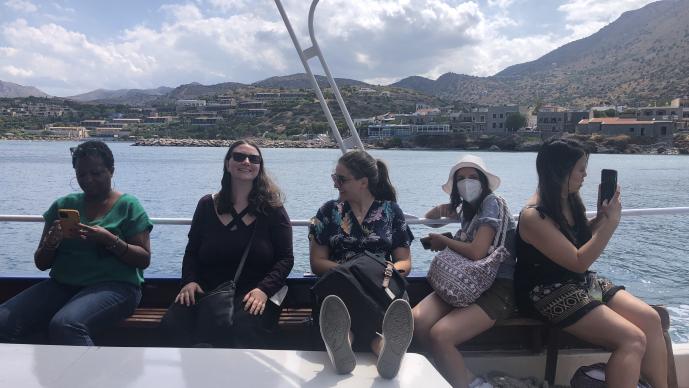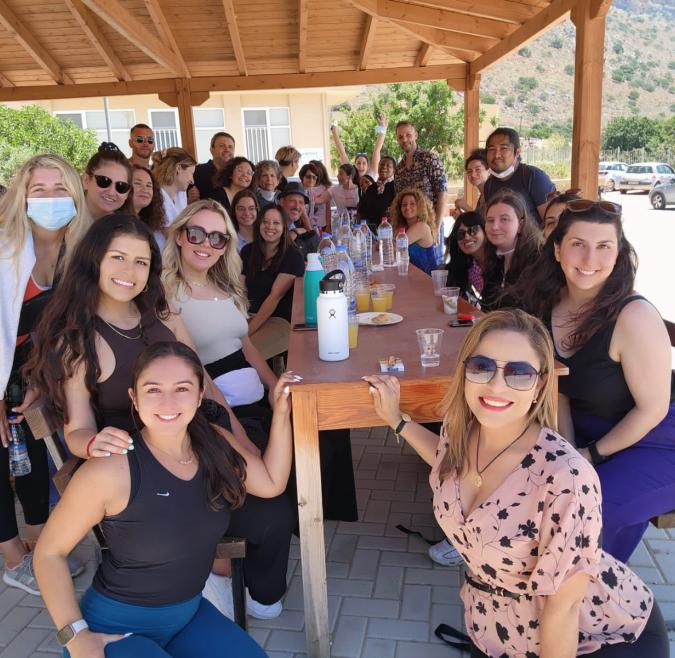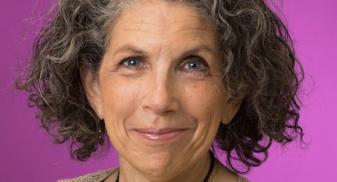Summer: Rutgers- Health Communication & Health Inequalities Across the Health Professions in Greece & the U.S.
The Program
How does communication in interpersonal relationships, organizations, and communities, as well as legal environments, and culture impact our health?
The emphasis of this course will be on communication and the examination of health disparities and inequities in healthcare through various health professional contexts. We will examine communication as a health-related outcome (e.g., improved communication between healthcare professionals and their patients, which leads to better health outcomes), as an important social process through which the environments we traverse in our everyday lives shape our health), and through a technological lens. The program will emphasize inequities that affect ethnic and racial minorities, immigrants and refugees, rural populations, and people living with low incomes, among others, both in Greece and the U.S.A.
The course will begin via Canvas and ZOOM on both sides of the Atlantic on June 1, 2023, 2 weeks before students and instructors from both universities and countries meet in person on the island of Crete, in Greece.
This is a collaborative effort of Rutgers’ School of Communication and Information and Rutgers’ School of Health Professions along with Greece’s Hellenic Mediterranean University in Crete, in the context of the Rutgers IAPP-Greece Initiative (https://iapp-greece.rutgers.edu/).

Program Locations

Greece
Crete
Rutgers and Hellenic Mediterranean University students and faculty will work in Crete, Greece. Our “home” base in Crete will be in Heraklion, where one of HMU’s campuses is located. Students from both countries will participate in program sessions at HMU and visit communities across Crete. Activities to aid students’ immersion in the local culture at HMU and around Crete are planned.
Academics
There are many determinants of health inequities that disproportionately affect a range of populations, including women, individuals with low socioeconomic status, ethnic and racial minorities, immigrants and refugees, people with disabilities, and individuals who identify as lesbian, gay, bisexual, transgender, queer or intersex (LGBTQI). This is true in most countries worldwide, including the U.S. and Greece, and research has documented inequities across a vast number of health outcomes (e.g., healthcare access, food insecurity, physical and mental health outcomes). Health inequities are difficult but not intractable problems.
The course adopts a socio-ecological approach to health; the class will systematically explore how all the contexts and environments in which we live our lives influence our health, independently and in interaction. This means examining not only how individuals’ characteristics (e.g., age, ethno-racial background, education) play a role in health, but also how interpersonal relationships, the organizations we interact with and are part of, as well as the communities and the legal/policy environments that we live in impact our health.
The emphasis will be on concepts related to the social determinants of health, communication and examining health inequities in various health professional contexts. We will examine communication as a health-related outcome (e.g., improved communication between healthcare professionals and their patients, which leads to better health outcomes), as an important social process through which the environments we traverse in our everyday lives shape our health), and through a technological lens. The program will emphasize inequalities that affect ethnic and racial minorities, immigrants and refugees, rural populations, and people living with low incomes, among others, both in Greece and the U.S.A.
To put knowledge developed through the course to work, students will work individually and in small teams to diagnose public health challenges in local communities and develop proposals for how to solve them. They will work closely with faculty from both the U.S.A. and Greece.
In-class and in-the-field instruction will be complemented by field trips that will facilitate students’ understanding of class readings and lectures, and promote a deeper understanding of the role of culture, social environmental factors, geography, and policy in the emergence of health disparities but also in efforts to eradicate them. Additional field trips and extracurricular activities are also planned for students to get to know and appreciate Crete and the local culture.
Learning Objectives
The course will begin via Canvas and ZOOM on both sides of the Atlantic on June 1, 2023, two (2) weeks before students and instructors from both universities and countries meet in person on the island of Crete, in Greece. It will continue in Crete from June 1-15 and finish on Canvas by July 7.
The program can be taken for up to 3 credits or toward service learning. In either case, students should consult about their plans with summer program’s directors and their academic program’s director.
The learning objectives are listed below; program competencies will be included in the syllabus for participants:
- Describe what health disparities and inequities are as well as the leading causes of them.
- Explain what social determinants of health are and why they matter.
- Articulate commonly used methodological approaches to diagnose health inequities and what causes them, but also methods for fighting and eliminating such inequities.
- Explain the different ways (direct and indirect) in which health communication can support and aid in maintaining health behavior change for individuals and groups.
- Apply conceptual tools to analyze and explain how culture is related to health, health inequities, and health communication across health professional contexts.
- Identify vulnerable populations and develop an intervention proposal to address a key health inequity among a vulnerable population in a local community.
- Evaluate critically claims and evidence regarding the effectiveness of health communication campaigns.
- Explain the use of Artificial Intelligence to develop health communication tools
Assignments:
Group assignments include a community health project completed in Greece. Individual assignments include readings, research journaling, and a podcast or editorial.
Housing and Meals
Students will stay in a hotel in Heraklion, Crete. Hotels stays will be double occupancy and include breakfast. The cost of group excursions will be included in the program costs as will most weekday lunches and some dinners.
Students may contact program directors, Drs. Matsaganis and Touger-Decker, for additional funding opportunities available through the School of Communication & Information and the School of Health Professions
Financial Information
Program Costs
| All Students | |
|---|---|
| Program Cost | $3,070 |
Program Cost includes:
- Housing
- Some meals
- Excursions
- Administrative Fees
- Emergency Medical Access Abroad
- (Contact program directors, Drs. Matsaganis and Touger-Decker, for additional funding opportunities available through the School of Communication & Information and the School of Health Professions)
Out-of-Pocket Costs
| Flight | $1,300 |
| Meals | $250 |
| Personal Expenses | $200 |
| Total | $1,750.00 |
Out-of-Pocket Cost includes:
The above costs are estimations and represent the known out-of-pocket costs students encounter during their time abroad.
Some of these expenses will be paid for prior to going abroad, such as an airline ticket, while some of these expenses, such as meals and personal expenses, will be paid in-country as part of your daily expenses. As you plan, you will need to budget these costs and spend wisely throughout your time abroad.






